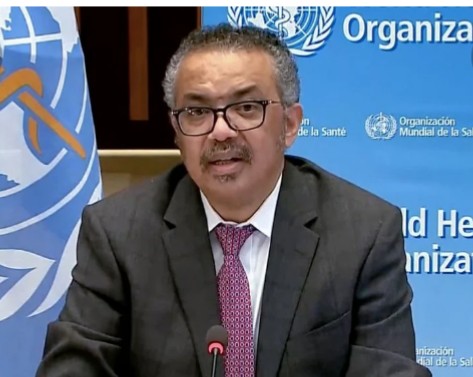|
Getting your Trinity Audio player ready…
|
Writes Marlvin Ngiza
The World Health Organisation (WHO) has called upon nations to prioritize investing into the health sector for more equitable and prosperous societies and economies.
This was said by WHO Director-General, Tedros Ghebreyesus, during a press briefing on global health issues.
In his remarks, Ghebreyesus said that low-income countries were failing to rebound to childhood immunizations while saying that WHO, UNICEF, and other partners have launched the Big-Catch up campaign working with the severely affected nations by the Covid-19 pandemic, to recover and strengthen their immunisation infrastructure.
“WHO and UNICEF have published new data which showed promising signs that immunization services were rebounding in some countries after disruptions caused by the COVID-19 pandemic. Last year, 4 million more children received immunizations than in 2021. This is encouraging news, but large gaps remain, and global and regional averages mask severe and persistent inequities, especially in low-income countries. More than 20 million children missed out on one or more vaccines last year, and almost 15 million missed out entirely. While these numbers are more than in 2021, they are still higher than stagnant or even declining further. More concerningly, low-income countries are not yet showing signs of recovery. In response, WHO, UNICEF, and other partners have launched the Big Catch up, working with most affected countries to catch up, recover and strengthen immunization infrastructure.
“Everyday diseases, conditions, and injuries incur huge costs to governments in terms of health sector spending and lost productivity. Many of these diseases, conditions, and injuries could be prevented at a fraction of the cost of dealing with their consequences. Investments in health are therefore an economic no-brainer, it’s time to re-think financing for health, it’s time to see health not as a cost but an investment, not as a consumptive sector but as a productive sector,” he said.
Meanwhile, Ghebreyesus cleared the air on the pandemic accord saying that WHO was not going to be part of it but its main role was to only facilitate the development of the accord.
The accord was designed to address the lack of solidarity and equity that hampered the global response to the COVID-19 pandemic.
“This week the Intergovernmental Negotiating Board to draft and negotiate the pandemic accord is holding its sixth meeting. Next week, the working group on amendments to the International Health Regulations will hold its fourth meeting and negotiations of both processes are entering a critical stage, with less than a year to finalise their work. Later this week, the two groups will host their first joint meeting. However, groups with vested interests are claiming falsely that the accord is a power grab by WHO. I need to put this plainly. The pandemic accord is an agreement between countries. The WHO is helping them to develop that agreement and will not be a party to the agreement,” he added.
Last week, WHO launched the World Rehabilitation Alliance, a global network focused on promoting rehabilitation as an internal part of universal health coverage.
